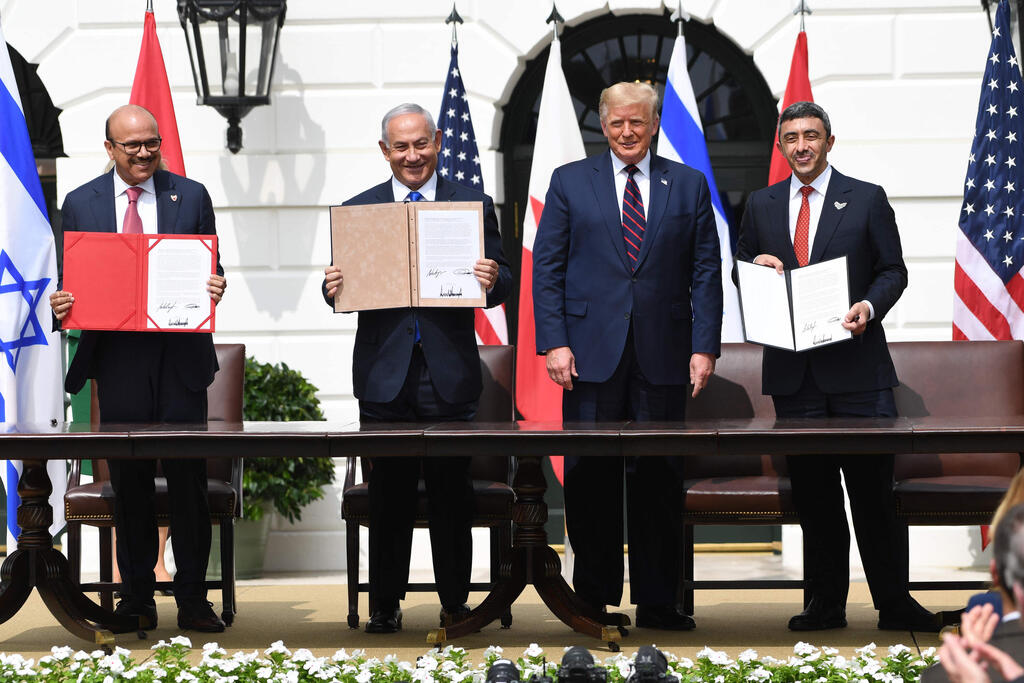Saudi Arabia and Qatar are among countries slated to establish relations with Israel under a regional rapprochement launched by U.S. President Donald Trump, a minister said on Monday.
Straying from Israel's reticence about Tuesday's U.S. election, Intelligence Minister Eli Cohen said implementing further normalization deals could depend on the next president displaying continued "resolve" against Iran.
Democratic presidential hopeful Joe Biden wants to rejoin the 2015 Iranian nuclear deal that the Republican incumbent quit, to the satisfaction of Israel and some Gulf Arabs.
Trump, who has played up his Middle East policy while campaigning, was asked last week which countries might follow the United Arab Emirates, Bahrain and Sudan in normalizing ties with Israel. "We have five definites," he responded.
Cohen said Saudi Arabia, Oman, Qatar, Morocco and Niger were "on the agenda".
"These are the five countries," he said. "And if the Trump policy continues, we will be able to reach additional agreements."
While not explicitly favoring either U.S. candidate, Cohen argued that Trump's policy had prompted Arab and Muslim countries to seek accommodation with Israel.
2 View gallery


L-R: Bahrain FM Abdullatif Alzayani, PM Benjamin Netanyahu, U.S. President Donald Trump, and Emirati FM Abdullah bin Zayed Al-Nahyan at the signing of the Abraham Accords at the White House
(Photo: AFP)
If the next president "does show resolve vis-a-vis Iran, then what will happen is that they will take their time, will not rush, will not choose a side," Cohen said. "A concessionary policy will get the peace deals stuck."
Saudi Arabia, the Gulf powerhouse and Islam's birthplace, quietly acquiesced to the UAE and Bahrain deals with Israel, signed on Sept. 15. But Riyadh has stopped short of endorsing them, and signaled it is not ready to follow suit.
The Saudis were the architects of a 2002 Israeli-Arab peace proposal that called for Israeli withdrawal from the West Bank to make way for a Palestinian state.
Qatar, which has links to Iran and Hamas, has ruled out normalization before Palestinians achieve statehood.


